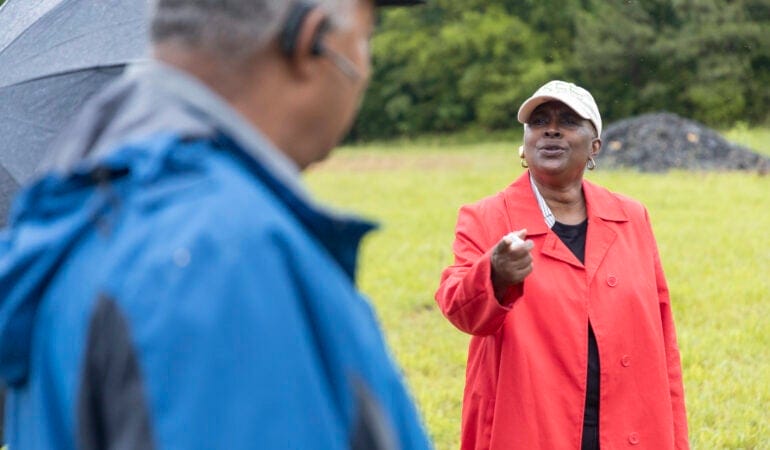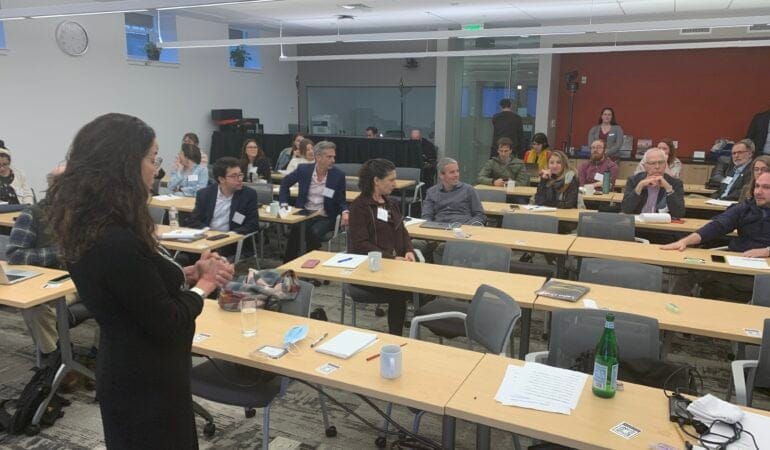Graduate Student Fellowships
2022–2023 Programa de becas para el máster UNED-Instituto Lincoln
Submission Deadline: November 29, 2022 at 11:59 PM
El Instituto Lincoln de Políticas de Suelo y la Universidad Nacional de Educación a Distancia (UNED) ofrecen el máster en Políticas de Suelo y Desarrollo Urbano Sostenible, un programa académico en español que tuvo gran demanda en su primera convocatoria. Se trata de un posgrado que reúne de manera única los marcos legales y herramientas que sostienen la planificación urbana, junto con instrumentos fiscales, ambientales y de participación sostenibles, todo desde una perspectiva internacional y comparada.
El máster en Políticas de Suelo y Desarrollo Urbano Sostenible es un programa en formato virtual y se compone de cuatro módulos, los cuales abordan una parte importante de la realidad actual de las ciudades: el derecho administrativo urbano, el financiamiento con base en el suelo, el cambio climático y el desarrollo sostenible, y el conflicto urbano y la participación ciudadana. El programa académico concluye con un trabajo final de máster que permite a los alumnos trabajar de cerca con actividades de desarrollo urbano actuales, como el proyecto Castellana Norte en Madrid.
El programa está dirigido especialmente a estudiantes de posgrado y otros graduados con interés en políticas urbanas desde una perspectiva jurídica, ambiental y de procesos de participación, así como a funcionarios públicos. Los participantes del máster recibirán el entrenamiento intelectual y técnico para liderar la implementación de medidas que permitan la transformación de las ciudades.
El período de matriculación es del 7 de septiembre de 2022 al 16 de enero de 2023.
El Instituto Lincoln otorgará becas que cubrirán parcialmente el costo del máster de los postulantes seleccionados.
Términos de las becas
- Los becarios deben haber obtenido un título de licenciatura de una institución académica o de estudios superiores.
- Los fondos de las becas no tienen valor en efectivo y solo cubrirán el 40% del costo total del programa.
- Los becarios deben pagar la primera cuota de la matricula que representa el 60% del costo total del máster.
- Los becarios deben mantener una buena posición académica o perderán el derecho a la beca.
El otorgamiento de la beca dependerá de la admisión formal del postulante al máster UNED-Instituto Lincoln.
Si son seleccionados, los becarios recibirán asistencia virtual para realizar el proceso de admisión de la Universidad Nacional de Educación a Distancia (UNED), el cual requiere una solicitud online y una copia de su expediente académico o registro de calificaciones de licenciatura y/o posgrado.
Aquellos postulantes que no obtengan la beca parcial del Instituto Lincoln podrán optar a las ayudas que ofrece la UNED, una vez que se hayan matriculado en el máster.
Fecha límite para postular: 29 de noviembre de 2022, 23:59 horas de Boston, MA, EE.UU. (UTC-5)
Anuncio de resultados: 16 de diciembre de 2022
Details
Climate Mitigation, Development, Dispute Resolution, Environmental Management, Favela, Henry George, Informal Land Markets, Infrastructure, Land Market Regulation, Land Speculation, Land Use, Land Use Planning, Land Value, Land Value Taxation, Land-Based Tax, Local Government, Mediation, Municipal Fiscal Health, Planning, Property Taxation, Public Finance, Public Policy, Regulatory Regimes, Resilience, Reuse of Urban Land, Urban Development, Urbanism, Value Capture, Zoning


